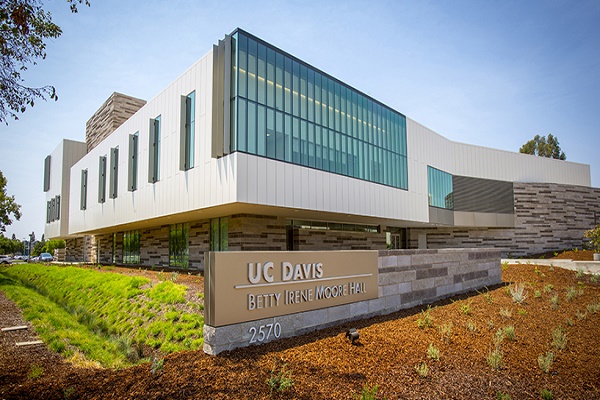University of California, Davis: Healthy Davis Together and UC Davis Genome Center Confirm Omicron Variant in Yolo County
As part of their free COVID-19 testing operations, Healthy Davis Together and the UC Davis Genome Center identified the first-known case of the B.1.1.529 (omicron) variant of SARS-CoV-2, the virus that causes COVID-19, in Yolo County. The omicron variant has been identified as a variant of concern by the U.S. Centers for Disease Control and Prevention (CDC) and the World Health Organization (WHO).
The CDC is working with other U.S. and global public health and industry partners to learn more about this variant, including how contagious it is, how severe its cases are compared to other variants and if current vaccines provide protection. Until more is known, it is important to take every precaution to prevent the spread of the new variant.
‘We must remain vigilant’
“The detection of the potentially highly transmissible omicron variant is concerning, especially with more people traveling and visiting with friends and family for the holidays,” said Aimee Sisson, Yolo County public health officer. “There is still a lot we don’t know about the omicron variant, but this detection is a reminder that we must remain vigilant in using the tools we have to protect ourselves against delta and omicron, including vaccination, boosters, testing and following local guidance on mask wearing.”
Every positive COVID-19 test conducted by Healthy Davis Together is automatically screened by the Genome Center for all currently known variants of concern so that immediate action can be taken to alert and protect the community. The person who had a positive PCR test result for the B.1.1.529 (omicron) variant is currently in isolation and contact tracing began immediately. The infection occurred in a West Sacramento adult with recent domestic travel who was vaccinated against COVID-19.
“We use a process called genotyping that allows us to quickly and inexpensively identify viral mutations of interest. Using the pattern of mutations, we can usually tell what variant (e.g., alpha, delta, omicron) the virus is. If necessary, as in this case, we follow that up with viral genome sequencing for confirmation,” said David Coil, project scientist at the Genome Center. “Through this process, we are able to swiftly identify not only positive COVID cases but also specific variants of concern so that infected individuals can isolate and reduce the spread in our community.”
Vaccinations and testing
Getting vaccinated, getting a booster when eligible, getting tested and following local mask guidance are the most important things people can do to prevent the spread of COVID-19, including the omicron variant.
If you are vaccinated and planning to travel or gather, it’s recommended that you get tested one to three days prior to and three to five days after traveling or gathering. If you aren’t vaccinated yet, it’s important to get tested regularly. With the recent approval of the Pfizer-BioNTech vaccine for children from 5-11, HDT strongly encourages everyone 5 years and older to get vaccinated.

